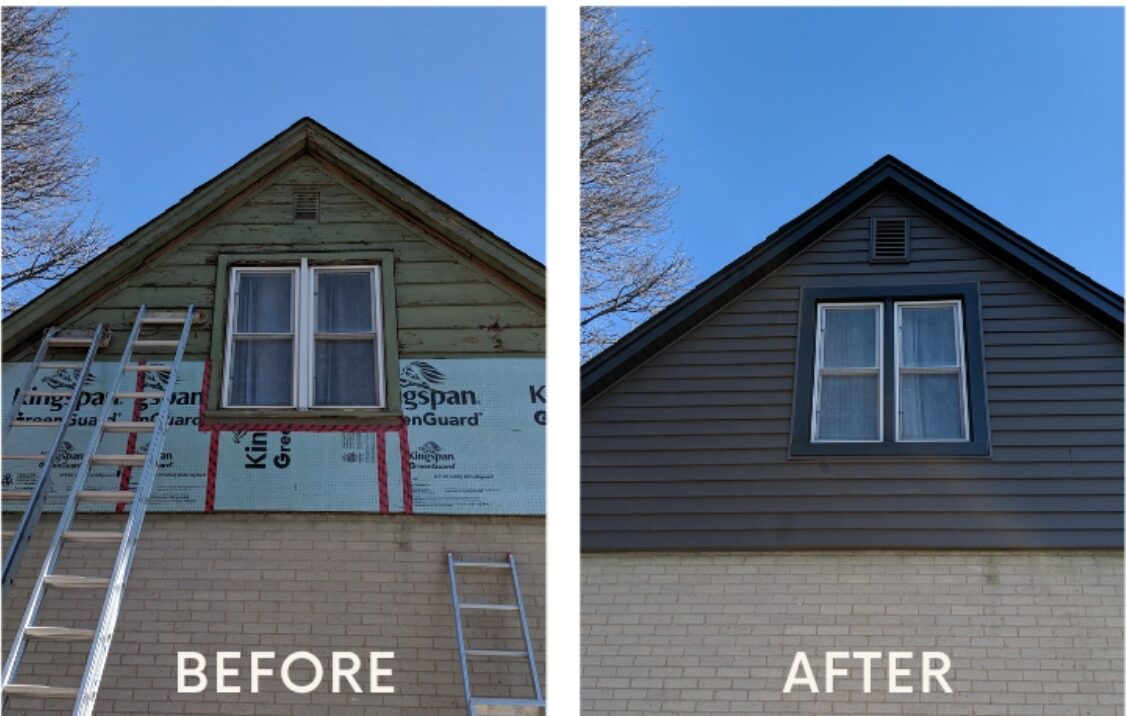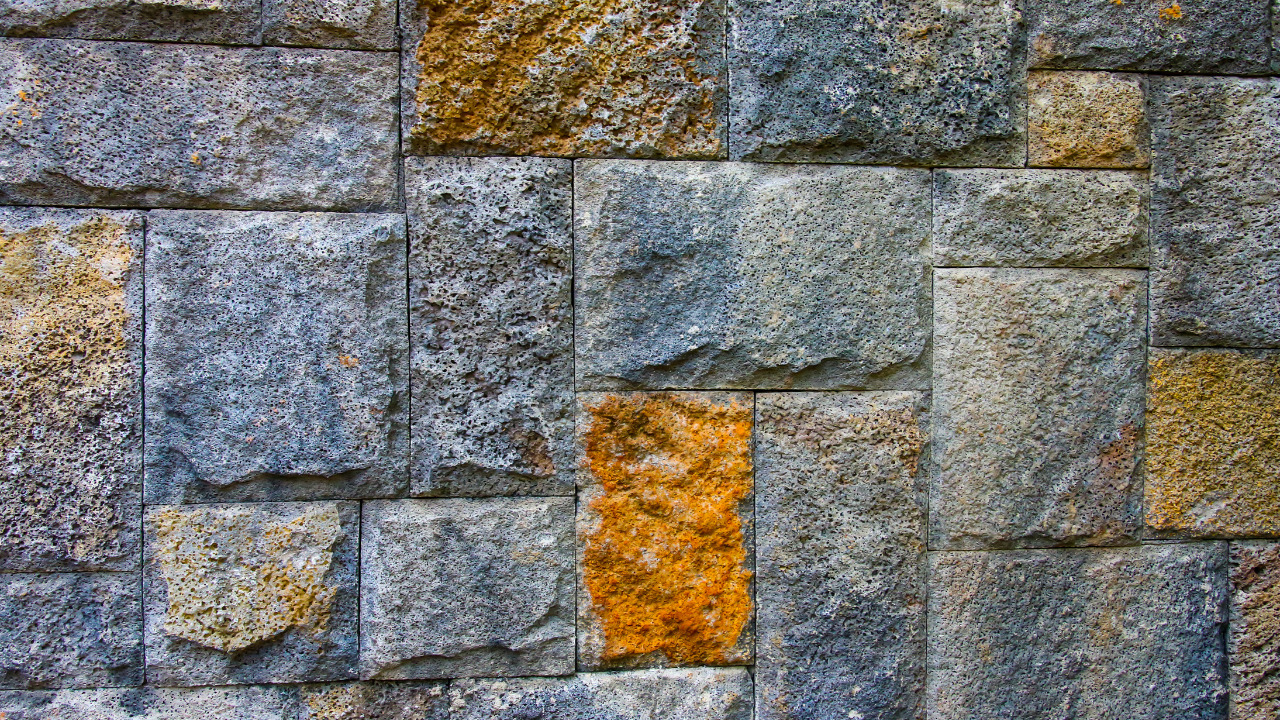When it comes to your home, few decisions have as much impact on its aesthetics, maintenance, and even its value as choosing the right siding material. Our homes’ exterior is the first line of defence against the elements and the highest expression of our style. In Guelph, where the heritage and charm of traditional architecture often meet the demands of a modern, sustainable lifestyle, the choice of siding takes on even greater importance.
Here, we’ve prepared a comprehensive guide to help you make the best choice for your residence. From classic materials like wood and brick to innovative options like fibre cement, we’ll discuss durability, maintenance, cost, aesthetics, and environmental impact to lead you through this crucial decision-making process.
Table of Contents
Types of Siding Materials
The siding industry offers a diverse palette, each with its unique blend of benefits and aesthetic appeal. Here are the most popular siding materials used in Guelph homes:
Vinyl Siding
Vinyl has been a go-to choice for many homeowners, with its low cost and virtually maintenance-free facade. It offers a broad spectrum of colours and styles, making it a versatile option for contemporary homes.
Wood Siding
Wood’s natural beauty has stood the test of time, particularly in heritage homes. Cedar, pine, and redwood are among the popular choices that can be stained or painted to match the homeowner’s preference.
Fiber Cement
Fibre cement is a blend of cement, sand, and cellulose fibres that provide a durable, non-combustible, and termite-resistant solution that can mimic the look of wood and other materials.
Metal Siding
Metal siding, typically aluminium or steel, is known for its strength, longevity, and low maintenance. It’s also a good reflector of solar radiation, helping to keep homes cool in the summer.
Brick Siding
Brick, a classic choice for many Guelph homes, offers exceptional longevity and requires very little maintenance. It also provides a natural fire resistance.
Stone Siding
Stone veneer, a relatively lighter alternative to full stone facades, offers a similar look with a reduced weight on the house structure.
Factors to Consider
Beyond the material’s facade, several factors should influence the decision-making process when it comes to a home’s siding:
Durability
Siding must withstand everything from blistering summer heat to freezing, wet winters. Some materials, like brick and stone, are renowned for their ability to weather the years with little change.
Maintenance
While wood and vinyl may offer picturesque results, they often require more upkeep than metal or brick. Regular maintenance can mean the difference between a siding lasting 20 years or needing replacement after a decade.
Cost
The initial cost of materials, as well as installation, can vary significantly. While vinyl and aluminium may offer the lowest cost upfront, the savings in maintenance over time with more durable materials must be weighed.
Aesthetics
Your siding is a defining feature of your home’s curb appeal. While personal taste plays a large role, it’s important to consider how well the material will integrate with the surrounding architecture.
Environmental Impact
Today, more than ever, the impact of our home choices on the environment matters. Materials like fibre cement and vinyl can offer sustainable profiles with recycled content and energy-efficient options.
Comparison of Siding Materials
Comparison charts can help to see the complete picture of siding materials:
| Siding Material | Pros | Cons |
| Vinyl | Low-cost, colour variety, low-maintenance | Susceptible to extreme temperatures, not as durable as other materials |
| Wood | Natural appeal, customisation, energy-efficient | The upkeep required may warp or rot over time, and it is not fire-resistant |
| Fiber Cement | Sturdy, fire-resistant, versatile | Installation can be complex and more expensive than vinyl or wood |
| Metal | Strong, low-maintenance, recyclable | It may not suit all architectural styles and can be noisy in windy conditions |
| Brick | Longevity, low maintenance, fire-resistant | Initial cost, difficult to install, limited design flexibility |
| Stone Veneer | Authentic look, light-weight, low maintenance | High initial cost and limited colour and texture options can be prone to staining. |
Each material has its strengths and weaknesses, which need to be considered in the context of your home and lifestyle.
Choosing the Best Siding Company for Your Home

Selecting the right material is only half the challenge. A skilled and reputable Guelph siding company can ensure that your investment provides the maximum return. Guelph is home to several high-quality siding companies, but choosing the right one for your needs is essential. Look for companies that have experience with the material you’ve chosen, can provide references and a portfolio of past work, and offer a comprehensive warranty.
Empire Exteriors is one such company with a reputation for delivering exceptional service and top-quality artistry. Specialising in Guelph homes, they understand the unique needs of local homeowners. Their dedication to customer satisfaction and the use of premium materials make them a leading choice for all your siding needs.
Conclusion
Selecting the appropriate siding material is a considerable decision for any homeowner. It must balance a myriad of factors, from budget to the style of the home to long-term maintenance. By weighing these factors and considering the comparative benefits of each material, homeowners can make a choice that not only looks great but also stands the test of time.
When it comes to installation, enlisting the help of a reputable company is non-negotiable, as proper installation is the key to the performance of the siding for years to come. With this information at hand, Guelph homeowners can confidently select the right siding for their beloved homes.





